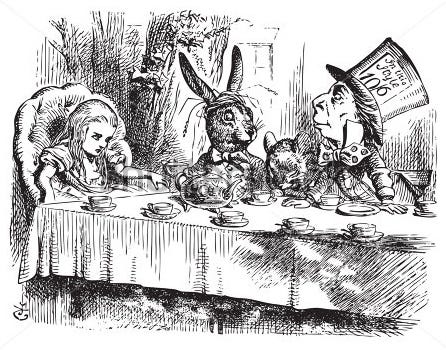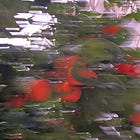curiosities #2
koine : familiarity : alternative lives
I’m Tuğba, a Turkish-Greek Artist living in Berlin - as slow as possible is a newsletter exploring the in-between spaces of our lives that we see but often do not notice. Interested in reading more of my work? Consider subscribing:
Curiouser and curiouser!' cried Alice
(she was so much surprised that for the moment she quite forgot how to speak good English)
Lewis Carroll's Alice in Wonderland : 1865
Last month, I wrote the first edition of curiosities. The idea came from the concept called “Cabinets of Curiosities.” More on that in my post here.
I am still fascinated by the idea of collecting our own curiosities in life. These curiosities are not limited to physical objects only - they can include emotions we’ve experienced, thoughts we’ve had, or even a beautiful tree we’ve seen. They are things we treasure and keep in our hearts, minds, souls, and perhaps even in our homes. We can relive these curiosities by sharing them through storytelling and art or by keeping them to ourselves in a secret place, stored safely for whenever we need cheering.
koine languages and dialects
Most of Greece follows Christian Orthodoxy, and Athens is home to both ancient temples and beautiful churches. While walking in the park with my friend one afternoon, I heard a call to prayer and stopped to listen. My friend asked what had happened, and I explained that I could hear a prayer and wondered if there was a mosque nearby. He replied that there wasn’t one in the park. We followed the beautiful sound of the prayer and discovered that it came from a church where prayers were being recited in Koine Greek. I stood there for a while, listening to the beautiful prayer along with the chirping of birds.
Koine Greek, which means “the common dialect,” was a form of Greek spoken and written during the Hellenistic period, the Roman Empire, and the early Byzantine Empire. During those centuries, it was the dominant language throughout much of the Mediterranean region and the Middle East. Over time, Koine Greek evolved into Medieval Greek and eventually became Modern Greek.
Interestingly, the term “Koine” describes a language that develops from the interaction between different dialects of the same language spoken over a large geographic area. Koine languages arise naturally without any deliberate construction. The language adopts the grammatical and lexical elements commonly recognised by most speakers in the region while discarding the ones that are not.
I was amazed to find out about other Koine languages such as:
Fiji Hindi
Caribbean Hindustani
“Dano-Norwegian” is the language that forms the basis of the written standard most commonly used in Norway, known as “Bokmål.”
Modern Hebrew is a unique temporal Koine, encompassing different stages of the Hebrew language.
Hutterite German is a dialect of Bavarian German spoken by Hutterite communities in Canada and the US.
Koine dialects:
Australian English is a dialect that emerged as a mix of 18th-century Cockney and Irish English.
Assyrian Neo-Aramaic Iraqi Koine is a dialect that combines the mountain dialects spoken in Turkey and northern Iraq with the dialect of the city. It was developed in the urban areas of Iraq, specifically in places like Baghdad, Basra, Habbaniya, and Kirkuk, where the Assyrians migrated. Iraqi Koine is believed to be a compromise between the mountains’ thicker accents and the city’s more prestigious dialect.
familiarity
Last Saturday morning, I was walking back to my Airbnb after an early nail appointment and as I walked, I heard music coming from one of the buildings. Being curious, I followed the music and saw an open entrance to a building. Inside, I came upon a group of children learning a Greek folk dance. Seeing the children, music, and dance stirred something within me. I recorded a few snippets and continued walking while reflecting on the experience.
It is not something I would randomly come across while walking in Berlin. What struck me was how familiar the music and dance felt, reminding me of my roots. It was comforting to connect with it. While Berlin is my home, everything around me looks and feels familiar, yet there are times when I feel like a stranger in my own city. It’s like watching a movie you’ve seen countless times—the setting looks the same, but there is a noticeable disconnect between what you see and how you relate to it. This feeling of not belonging is something that I’ve written about before.
It’s my first visit to Athens! Watching these children dance to music that I’m so familiar with on a casual Saturday morning reminded me that I can feel like a native in a foreign city while simultaneously feeling like a foreigner in my own city!
alternative lives
This curiosity is not directly related to Athens, but I read this book while I was here, and I absolutely loved it! The Midnight Library is a fantasy novel written by Matt Haig. The story was so captivating that it stayed with me for days. My mind and heart kept going back to it even after I finished reading it. My favourite quotes from the book:
So, you see? Sometimes, regrets aren’t based on fact at all. Sometimes regrets are just . . .’ She searched for the appropriate term and found it. A load of bullshit.
But I still don’t get why you let me go into that life if you knew Volts was going to be dead anyway? You could have told me. You could have just told me I wasn’t a bad cat owner. Why didn’t you? Because, Nora, sometimes the only way to learn is to live.
Every second of every day we are entering a new universe. And we spend so much time wishing our lives were different, comparing ourselves to other people and to other versions of ourselves, when really most lives contain degrees of good and degrees of bad. And there is no right way to play; there are many ways. In chess, as in life, possibility is the basis of everything. Every hope, every dream, every regret, every moment of living.
This book made me realise that I’ve been wrong in my thinking about life. Next week, I'll be turning 40, and I've been reflecting on my life choices. I used to imagine what could have happened if I had taken a different path. I often thought that the grass might be greener on the other side. However, I've realised that even seemingly perfect lives have their own challenges and drawbacks.
Every decision we make in life comes with it’s own set of challenges. Imagining alternative lives where we take different paths might lead to dreams of an ideal life but also regrets. We tend to assume the best possible outcomes for these paths without considering the cons and drawbacks they may possess. The truth is that there is no perfect life, and all we can do is be content with our decisions and learn from the experiences that come our way.
I would love to hear about some of your curiosities! If you're interested in reading more of my work, kindly consider subscribing to my free newsletter.
Take care!
Your friend Tuğba
What you might have missed:








This was such an interesting read. I had never heard of Koine languages before. And you are right about the feeling of feeling like an outsider in a place that you have called home and feeling like you belong in a place far away from home. I read The Midnight Library a few years ago and I really liked the message it had for all of us.
Oh Tuğba, loved this piece- as expected.
I read the Midnight library last summer and had to take it slower so it would last longer. I loved it so much. I definately think the book helps put your life choices into perspective and makes you remember to make the most of the choices you make.